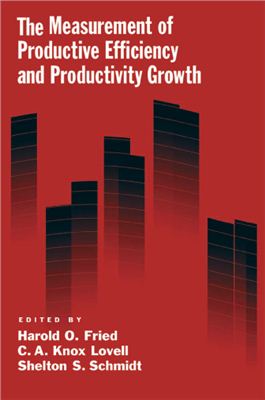Oxford University Press – 2008, 653 pages
ISBN: 0195183525
When Harold Fried, et al. published The Measurement of Productive Efficiency: Techniques and Applications with OUP in 1993, the book received a great deal of professional interest for its accessible treatment of the rapidly growing field of efficiency and productivity analysis. The first several chapters, providing the background, motivation, and theoretical foundations for this topic, were the most widely recognized. In this tight, direct update, these same editors have compiled over ten years of the most recent research in this changing field, and expanded on those seminal chapters. The book will guide readers from the basic models to the latest, cutting-edge extensions, and will be reinforced by references to classic and current theoretical and applied research. It is intended for professors and graduate students in a variety of fields, ranging from economics to agricultural economics, business administration, management science, and public administration. It should also appeal to public servants and policy makers engaged in business performance analysis or regulation.
ISBN: 0195183525
When Harold Fried, et al. published The Measurement of Productive Efficiency: Techniques and Applications with OUP in 1993, the book received a great deal of professional interest for its accessible treatment of the rapidly growing field of efficiency and productivity analysis. The first several chapters, providing the background, motivation, and theoretical foundations for this topic, were the most widely recognized. In this tight, direct update, these same editors have compiled over ten years of the most recent research in this changing field, and expanded on those seminal chapters. The book will guide readers from the basic models to the latest, cutting-edge extensions, and will be reinforced by references to classic and current theoretical and applied research. It is intended for professors and graduate students in a variety of fields, ranging from economics to agricultural economics, business administration, management science, and public administration. It should also appeal to public servants and policy makers engaged in business performance analysis or regulation.

